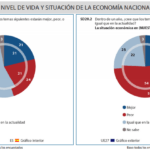Why and how should the EU build crypto-regulation to foster innovation and protect users?
The use of crypto-assets and the technology behind them has provdn to be both immensely promising and problematic. The EU wants to help boost the development of these technologies and their use in the EU, while protecting users.
Risks of crypto-assets
Part of the attraction of crypto-assets is avoiding the need for a central register and institution, enabling safe and simple transactions between two parties without an intermediary. However, this, together with a lack of regulation- (crypto-assets are currently out of the scope of EU legislation – creates substantial risks.
Risks for consumers, companies and markets
When dealing with crypto-assets, people are not covered by EU consumer protection rules and are often not well informed about the risks, which could mean they lose money. The widespread use of crypto-assets without regulation could drive financial instability, market manipulation and financial crime. As transactions are largely anonymous, cryptocurrencies are widely used for criminal activities. In the wake of the Ukraine war, EU countries limited trade with crypto-assets for use in Russia or with a Russian entity.
Environmental impact
The technology uses huge quantities of electricity, resulting in a high environmental footprint. According to estimates, the energy consumption of bitcoin equals that of a small country.
The benefits of new EU crypto-regulation
The EU is working on new rules to boost the potential of crypto-assets and curb the threats: Markets in Crypto-Assets (MiCA). MEPs have reviewed and amended the European Commission’s proposal and in March 2022 decided to begin negotiations on the final shape of these rules with EU countries in the Council.
In order to encourage the development and use of these technologies, the new rules aim to provide legal certainty, support innovation, protect consumers and investors and ensure financial stability.
The rules cover transparency, disclosure, authorisation and supervision of transactions. MEPs want the issuing of some of the tokens to be supervised by the European Securities and Markets Authority and the European Banking Authority. Businesses dealing with crypto-assets will have to better inform consumers about risks, costs and charges. By regulating public offers of crypto-assets, the rules would ensure financial stability, while other measures tackle market manipulation, money laundering, terrorist financing and other criminal activities.
To reduce the high carbon footprint of crypto-currencies, MEPs are asking the Commission to prepare new rules to include any crypto-asset mining activities that contribute substantially to climate change in the classification system for sustainable activities.
After the MEPs negotiate the final shape of the bill with EU governments, it must be adopted by the Parliament as a whole as well as by EU countries.
The new rules are part of a wider Digital Finance Package that supports the EU’s digital transition by encouraging innovation while ensuring protection. The package includes new rules to support testing of the distributed ledger technology in market infrastructures, adopted by the Parliament in March 2022.
What are crypto-assets, cryptocurrencies, tokens and stablecoins?
Crypto-assets
Crypto-assets are digital assets that can be used as a means of exchange or for investments. Unlike traditional banking, there is no need for a central register – they are based on distributed ledger technology that enables transactions to be recorded securely by a network of computers. They are private; not issued or guaranteed by a central bank or public authority. “Crypto” in their name hints at security – they are secured with cryptography.
Cryptocurrencies
The first crypto-assets were bitcoins, introduced in 2008 as a cryptocurrency – a payment method alternative to central bank-issued currencies. By 2020, there were 5,600 different cryptocurrencies with an estimated global value of €250 billion (still a relatively small share of the value of all money). This generation of crypto-assets is generally not backed with assets that hold intrinsic value and their value is often quite volatile, which limits their practical use, turning them into a form of risky investment rather than a useful currency.
Tokens and stablecoins
Tokens are newer crypto-assets; they are a digital representation of interests or rights to certain assets. They are typically issued to raise capital for new entrepreneurial projects or start-ups.
The introduction of new products such as stablecoins that could be a more stable payment method as their value is backed by real assets brings new possibilities for innovation and use on a larger scale. With that, larger threats appear.
Source: European Parliament







Leave a Reply